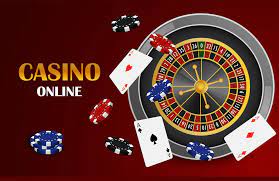Slot machines have become one of the most recognizable forms of gaming entertainment across casinos, online platforms, and gaming lounges. With their agen sbobet88, spinning reels, and the anticipation of a potential win, slots offer simplicity and excitement that appeals to millions of players. However, behind the surface of these colorful machines lies a structured system of probability, design strategy, and evolving technology. This article explains how slot machines work, their history, and what factors influence their outcomes.
1. A Brief History of Slot Machines
Slot machines originated in the late 19th century. The first mechanical slot, known as the Liberty Bell, was created by Charles Fey in 1895. It featured three spinning reels and simple symbols like horseshoes, stars, and bells. Pulling a lever spun the reels, and matching symbols resulted in a payout.
As the 20th century progressed, slot machines transitioned from mechanical to electromechanical systems, and eventually to computerized video slots. Today, modern slots use Random Number Generators (RNGs) to determine outcomes, ensuring fairness in each spin.
2. How Slot Machines Work
Although slot machines may look simple, their core mechanism is based on mathematics and probability.
Random Number Generator (RNG)
- Every time a player presses “spin,” the machine’s computer instantly generates a random number.
- Each number corresponds to a particular combination of symbols.
- This means every spin is independent—previous results do not affect future outcomes.
Reels and Symbols
- Most slot machines use three to five reels.
- Each reel contains multiple symbols, such as fruits, numbers, letters, or themed images.
- Winning occurs when specific symbol combinations align on active paylines.
Paylines
- A payline is the pattern across the reels where symbols must match.
- Some slots have a single payline; modern video slots can have 20, 40, or even thousands of paylines.
3. Types of Slot Machines
Slot machines vary in structure and gameplay features:
| Type | Description |
|---|---|
| Classic Slots | Traditional 3-reel machines resembling the original Liberty Bell. |
| Video Slots | Multi-reel slots with animations, themes, sound effects, and multiple paylines. |
| Progressive Slots | Machines linked to a network where the jackpot increases every time someone plays. |
| Themed Slots | Slots designed around movies, celebrities, mythology, or cultural stories. |
4. RTP and Volatility
Two important terms help explain how a slot behaves:
RTP (Return to Player)
- RTP is the percentage of all wagered money a slot will return to players over time.
- For example, a slot with 96% RTP is expected to return 96 out of every 100 units wagered in the long term.
- However, this does not guarantee short-term results.
Volatility
- Low volatility slots give frequent but smaller wins.
- High volatility slots offer larger potential payouts but less frequent wins.
Players choose based on their preferences for risk and reward.
5. Why Slot Machines Are Popular
Slot machines continue to attract players for several reasons:
- Ease of Play: No strategy or complex rules are needed.
- Visual and Audio Design: Bright graphics and sound effects create excitement.
- Variety: Themes and styles appeal to different interests.
- Accessibility: Slots are available in casinos, mobile apps, and online platforms.
6. Responsible Gaming
While slot machines are designed for entertainment, it is important to approach them responsibly.
- Wins are never guaranteed.
- The outcome depends entirely on chance due to RNG.
- Set a budget before playing and avoid chasing losses.
Slot machines should be viewed as entertainment, not a method of income.
Conclusion
Slot machines have evolved significantly from simple mechanical devices to highly interactive digital experiences. Their lasting appeal comes from their simplicity, variety, and the excitement of unpredictability. By understanding how they function—especially concepts like RNG, RTP, and volatility—players can appreciate the mechanics behind the game and engage more responsibly. Whether played in land-based casinos or online environments, slots continue to be a fascinating blend of technology, design, and chance.

More Stories
The Fascinating World of Slot Machines: From Mechanical Marvels to Digital Entertainment
The Fascinating World of Slot Games: From Mechanical Reels to Digital Realms
The Evolution and Appeal of Slot Games in the Digital Era